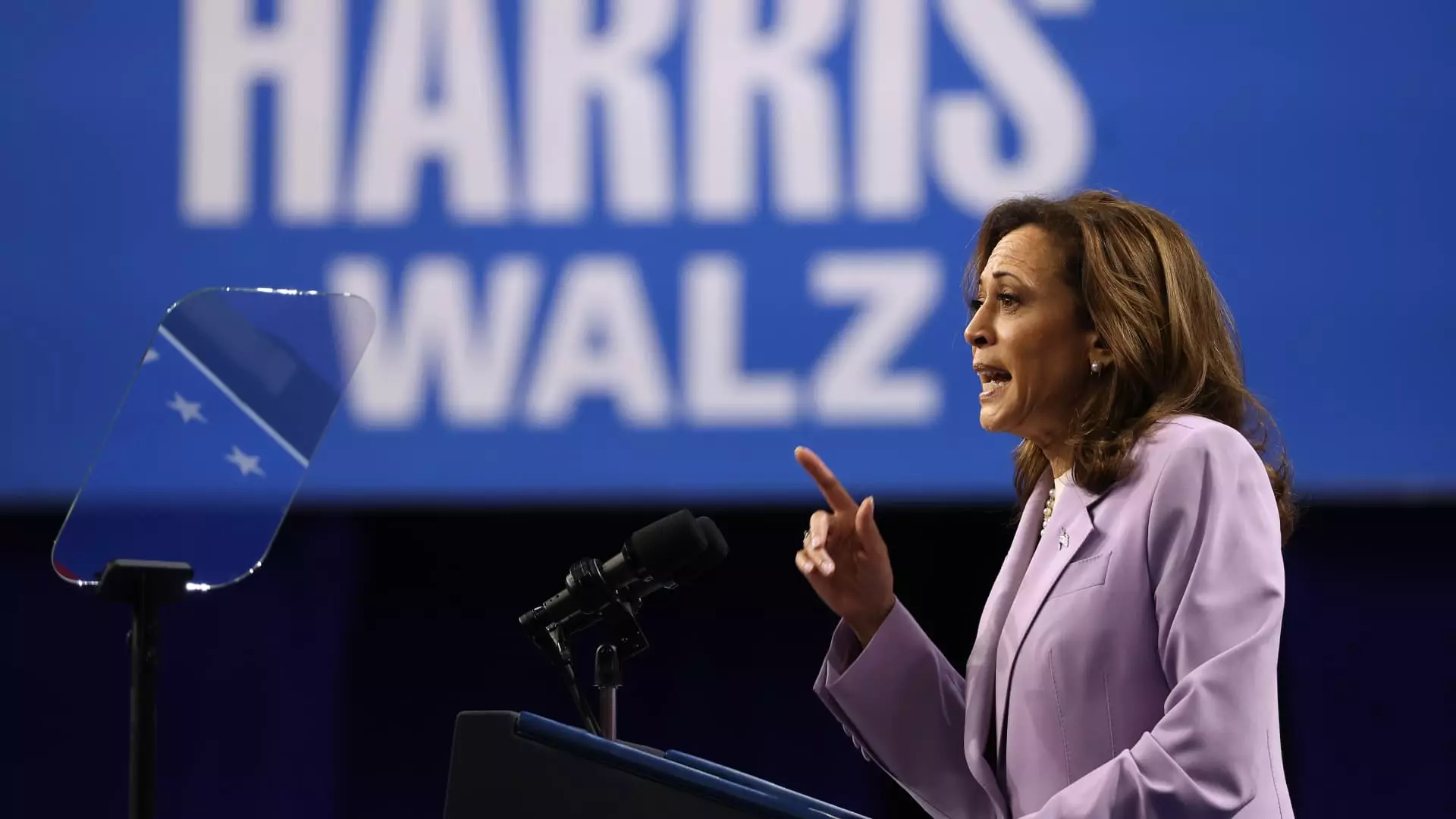Affordable housing is at the forefront of Vice President Kamala Harris’ economic policy agenda, designed to boost the “opportunity economy.” During a speech in Raleigh, North Carolina, Harris emphasized the importance of making homeownership more affordable in the United States. Part of her plan includes the construction of 3 million new housing units over the next four years, catering to both renters and buyers. Experts in the housing industry believe that increasing the housing supply is crucial to addressing affordability challenges, particularly in the wake of the foreclosure crisis that led to a significant slowdown in new home construction.
While Harris’ proposal to incentivize homebuilders with tax credits for selling starter homes to first-time buyers has garnered some support, critics like Edward Pinto from the American Enterprise Institute’s Housing Center argue that these measures may not be effective. Pinto suggests that it is more challenging for the government to implement supply-side solutions compared to demand-side initiatives that ease the homebuying process for consumers.
Another point of contention raised by experts in the field is the difficulty of defining what constitutes a “starter home.” James Tobin, CEO of the National Association of Home Builders, highlights the complexities involved in keeping building costs low, especially in markets with high labor, land, and material expenses. Tobin emphasizes the need for a flexible pricing strategy that can cater to diverse housing markets across the country.
Harris’ proposal to allocate $40 billion towards an innovation fund aimed at supporting local housing solutions has sparked skepticism among industry professionals. While the intention behind empowering local governments to address housing issues is commendable, concerns have been raised about the effectiveness of federal intervention at the local level. Experts question whether local authorities will be willing to implement housing policies in exchange for federal funding, especially if it involves significant changes to existing regulations.
In an effort to assist first-time homebuyers, Harris has proposed providing $25,000 in down-payment assistance to individuals who have a track record of timely rent payments. While this initiative aims to make homeownership more accessible, critics like Senator Tim Scott from South Carolina argue that it could potentially drive up housing demand without addressing supply-side constraints, leading to inflated prices and a higher risk of defaults. Additionally, Harris has called for the passage of legislation aimed at curbing predatory investing practices in the rental market, signaling her commitment to protecting renters’ rights.
As Vice President Harris continues to refine her affordable housing plan, it is essential for policymakers to consider the diverse challenges and nuances within the housing market. While addressing affordability issues is a priority, the effectiveness of proposed measures like tax incentives, down-payment assistance, and local innovation funds remains a topic of debate. By engaging with stakeholders across the housing sector and incorporating feedback from experts, Harris can work towards designing a comprehensive and sustainable housing policy that benefits all Americans.

